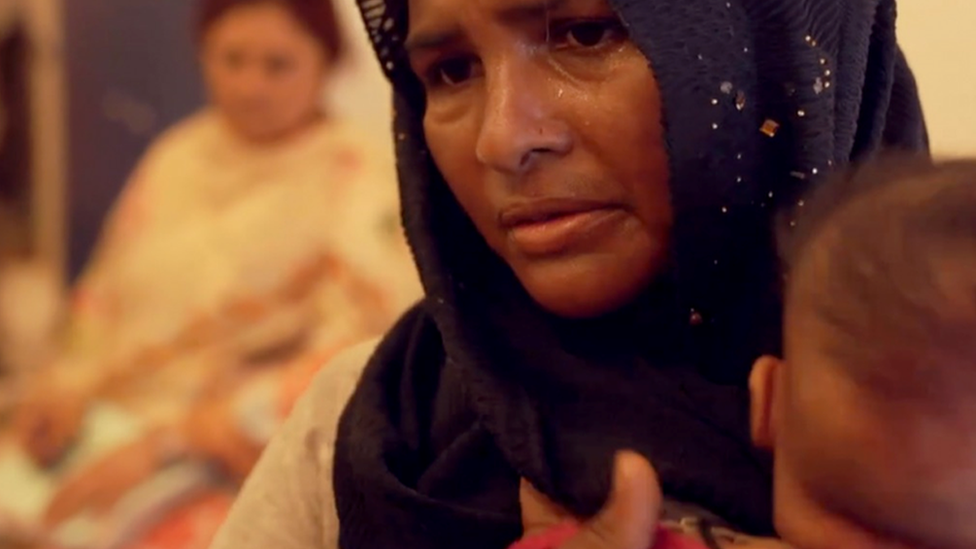COP27: 'We'd never seen this much water' - Pakistan flood survivors
- Published
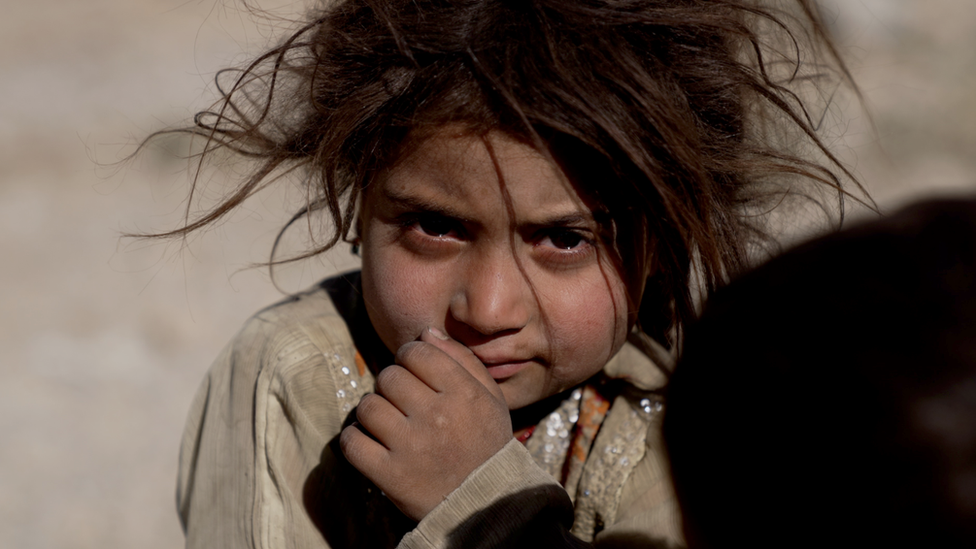
It could take years for families in areas hit by the floods to return to the lives they lost
Months on from devastating floods in Pakistan, millions of people remain homeless, roads are destroyed and tens of thousands of schools and hospitals lie in ruins.
At the COP27 summit, the country's Prime Minister Shehbaz Sharif called on Western nations to offer compensation to poorer, vulnerable countries like his, which bear the brunt of climate change.
Pakistan's government says the figure for losses and rebuilding now stands at more than $30bn.
But the human cost is far higher - more than 1,700 people died in the floods and two million homes were damaged or destroyed. Those people who survived are living in endless uncertainty and despair.

'My son drowned in the flood water'
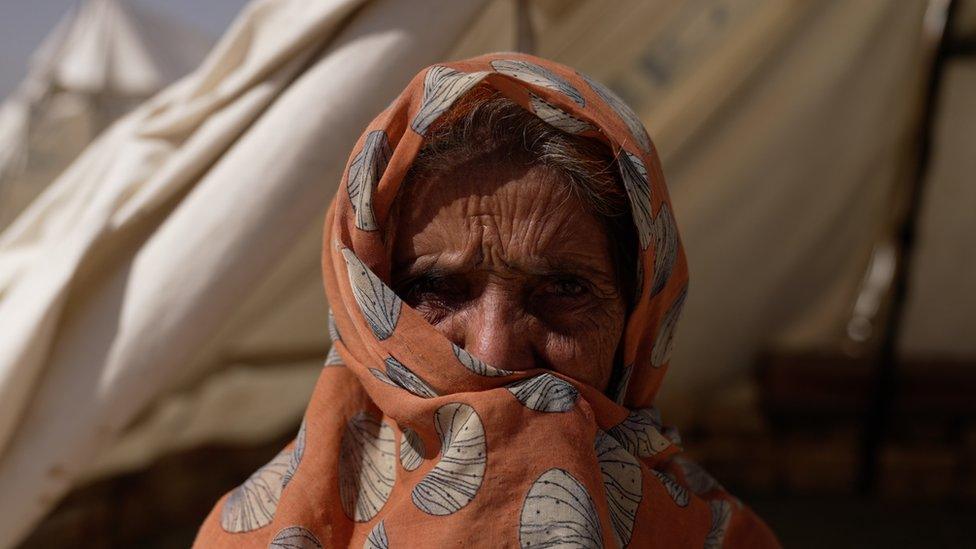
Hanifa is one of the millions of homeless people
As Hanifa takes shade under a tent in a temporary relief camp, miles from what was once her home, she explains what happened on the day in August when the rains changed everything.
"My son saved us by losing his life," she says of Abdul Wahab, the breadwinner for her family and a father of six.
As the water pounded on their mud brick house in the south-western province of Balochistan, Abdul feared the structure was about to collapse completely.
He got his family out to safety, ready to take them to a nearby mosque for shelter.
Just before they departed, Abdul went back in to get something. He never came back, Hanifa says. "We ended up burying him at the mosque."
Her other son used whatever money he had to hire a car, so the family could escape the flood-stricken area.
They crossed a bridge, just hours before it collapsed. Some of Hanifa's relatives, who were also trying to flee, got stuck on the other side and were swept away in the water, she says.
"We've seen floods in the past, but never like this one. Homes just collapsed and many villages were destroyed," Hanifa recalls.
Weak, not just from the weight of grief, but also from hunger, she was staying in a relief camp close to the city of Quetta when the BBC interviewed her.
Hanifa mourns the life she lost and, most of all, Abdul, the son she cherished.
"He is always in my heart."

'My school was washed away'
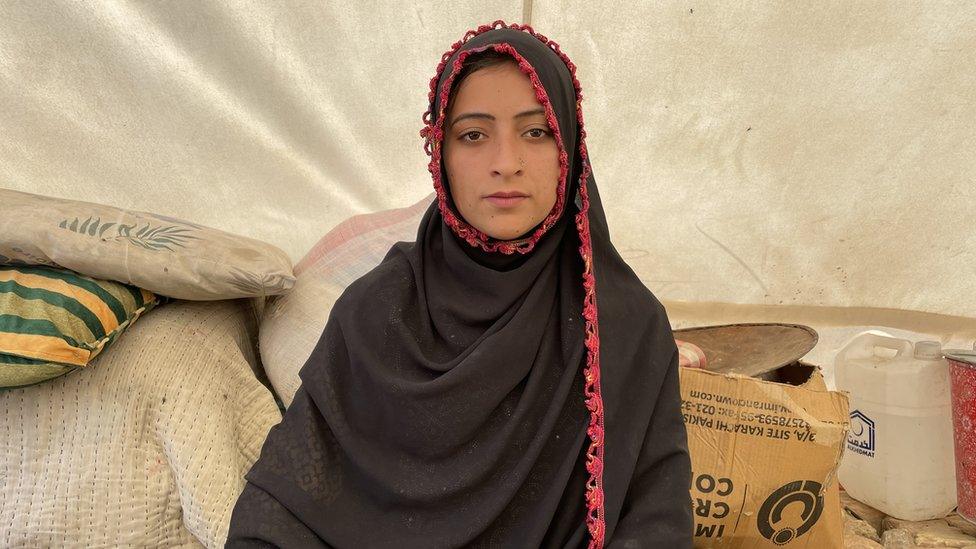
Najma's is one of more than 25,000 schools that were damaged or destroyed in the floods
Najma dreams of becoming a doctor, but with her school underwater, she fears that day will never come.
"I miss my classroom, I miss my teachers," she says.
With her books also washed away, she's been unable to study at all: "I miss my books from the bottom of my heart."
In fact, Najma's entire home was claimed by the floodwaters, which is why she was forced to stay in a tent at a relief camp far from her village.
With her days bereft of purpose, Najma now spends most of her time sitting idle - apart from when she prays or helps wash dishes at the camp.
It's left Najma not just bored, but scared.
"I am worried my education has been wasted. I want to continue my studies and complete my secondary education," she says.
Going to school as a girl was already a feat in itself. In socially conservative parts of Balochistan, many families don't allow their daughters to attend classes.
It could take years for Najma's home and school to be rebuilt. With more than 27,000 schools damaged or destroyed across Pakistan, some charities and aid agencies have set up temporary learning centres.
At the camp where Najma is staying, lessons are provided only for the youngest.
As she sits in her tent, Najma is able to hear the sound of a group of primary age children, chanting the alphabet in a marquee close by. She longs to get back to her own class.
"I want to open a hospital for poor people and give them free treatment.
"If they want anything, we will give it to them - right now we are in need, one day I want to help others."

'My three-year-old asks where her bedroom is'
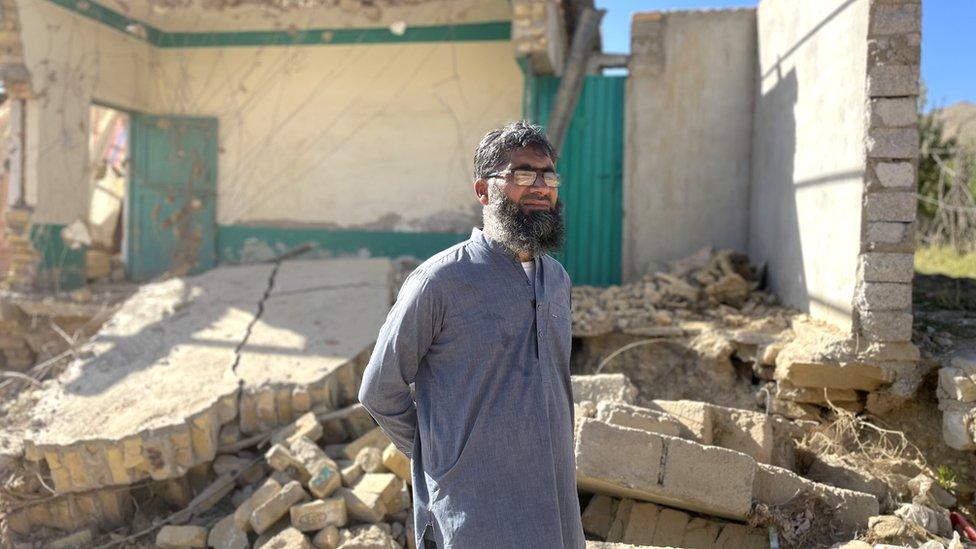
Abdul Qayoom's home has been left in ruins
Piles of bricks, slabs of concretes and mounds of rubble, and on the wall that remains standing, a bright green door which now leads to nothing.
"This home was in our family for a hundred years," Abdul Qayoom tells me, as he picks up some of the debris and loads it into a wheelbarrow.
"My three-year-old daughter keeps asking me when we she can move back into her bedroom," he says, before gesturing to the space where it once stood.
Flash floods at the end of August damaged his house in the Hana Urak area of Balochistan, part of Pakistan that's dry and arid and usually more prone to drought than rain.
"We've never seen this much water in our lives," Abdul explains, "My uncle is 84 and even he hasn't witnessed this sort of flooding in this area."
Surviving off basic food rations, Abdul and his family are staying with his brother close by. He's unsure how he'll afford to rebuild his home, but one thing he is certain of is that when it happens, it won't be here.
"I won't rebuild in the same place, because I'm terrified, I think we will look for a safer place, higher up on a hill."
The entire area surrounding Abdul's home is broken and barren.
In this district, famous for its apples, trees have been uprooted, lucrative orchards have been washed away, huge chunks are now missing from roads and rubble is scattered everywhere.
"This area suffered big infrastructure damage," Abdul explains, "most of us here are poor, and have lost our homes and sources of income."
As we leave, Abdul shares a local saying. "Here we say that you either own a house or a grave," he tells us.
"When you go to the market, you always return home. When you go [on pilgrimage] to Mecca, you always want to come home. Home is everything," he says wistfully.
As he trundles away with his wheelbarrow, that home has now been turned to nothing.
- Published4 October 2022
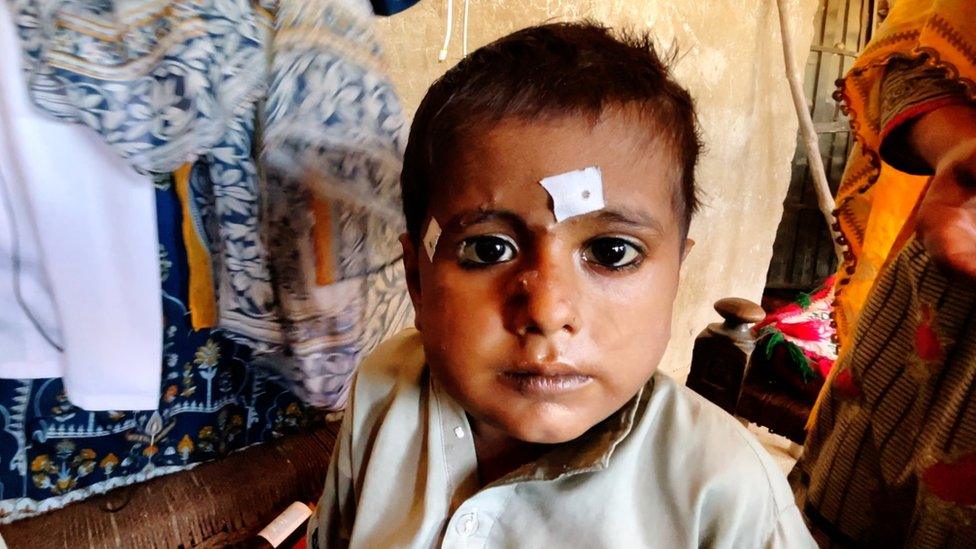
- Published19 September 2022
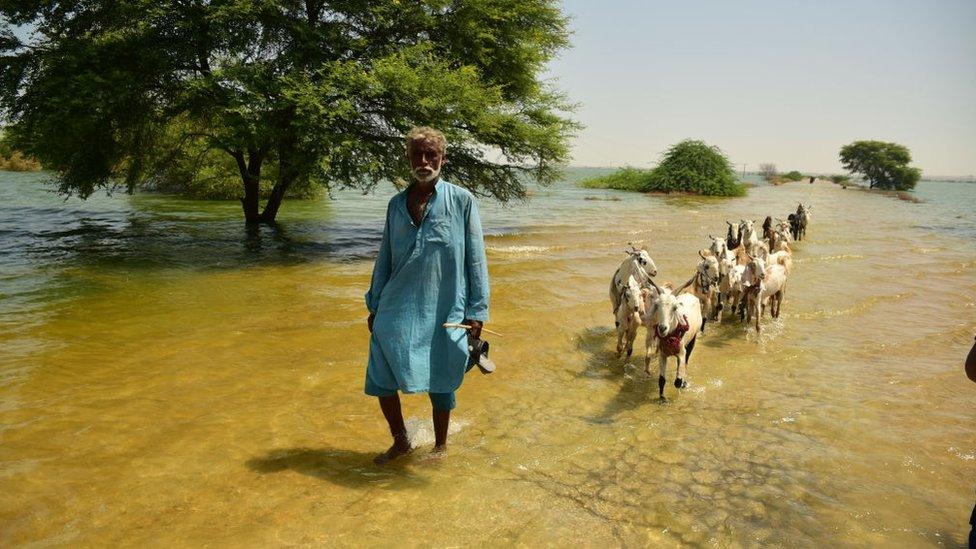
- Published15 September 2022
